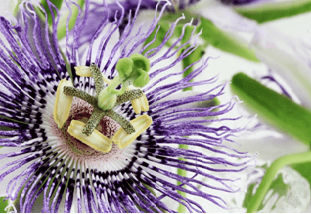When many people think of tea, a multitude of options come to mind. There are many varieties of tea itself, which comes from one of the plants in the camellia sinensis family. The different varieties of tea from this plant depend largely on how the leaves are harvested and processed. For instance, green tea comes from the younger leaves of the plant and black tea is made from more mature leaves. All of the leaves are fermented to varying degrees.
While concoctions are brewed from items other than the leaves of the tea plant, these are not technically tea. These alternative brews are actually referred to as tisanes, and can be made from a number of different herbs, spices, and flowers.
While both tea and tisane have many health benefits, there are certain aspects of tisane that are as good as, or better, for you than tea. Tisane is prepared in the same way as tea, and it can be either steeped or brewed depending on your preference and the nature of the herbs or flowers you’re using. The resulting beverages are not only delicious but they also have some surprising health benefits that can outweigh those of tea itself.
Check with your doctor if you have any questions about trying tisane, and check out the list below of several different types of tisane and their effects on the body.
1. Peppermint
Peppermint is one of the most popular of the herbal tisanes, and for good reason. It has wonderful properties that help to soothe the stomach, preventing gas, bloating, nausea, and vomiting. It also has a wonderful taste and is suitable for people of all ages.
Fresh peppermint is best if you have some growing in your garden. If not, any commercial peppermint tisane will do just fine. Be sure to use only peppermint, however, as other varieties of mint such as spearmint do not have the same effect on the gastrointestinal system.
2. Passion Flower
Passion flowers are not only strikingly beautiful, the tisanes made from them have some incredible properties than can benefit almost anyone, especially if you have trouble sleeping. Several studies have shown that passion flower has other benefits as well.
For those who suffer from anxiety, passion flower might be the answer to your troubles. Some scientists have found that when subjects drank passion flower tisane they reported fewer feelings of stress and anxiety, and their ability to complete tasks without cloudy judgement was better than when they took prescription anxiety medications.
3. Fenugreek
Fenugreek has long been used in many recipes from around the world, and its health benefits have been documented for almost as long. While the leaves of the plant are edible, it’s the seeds that carry the most beneficial health properties and are used in a variety of preparations.
Sweet fenugreek seed tea has been used to treat ailments such as eczema when applied topically, and is used to stimulate the production of breast milk and to lower blood sugar when ingested as a tisane. Check with your doctor before beginning a fenugreek tea regimen; it can interfere with some prescription medications.
4. Rosemary
Absolutely delicious when added to recipes, rosemary also has some surprising health benefits when steeped as a tisane. The next time you have a headache, don’t reach for the aspirin; try some steeped rosemary instead.
Rosemary helps to keep blood vessels dilated which can reduce the symptoms of headaches and other types of pain that occur when blood vessels constrict. Simply add one teaspoon of dried rosemary from your spice rack to a cup of boiling water. Let it steep for a few minutes, strain, and enjoy.
5. Thyme
Another great herb that you likely have in your kitchen is thyme. When you’re not using thyme to flavor delicious gravies and sauces, you can use it to treat coughs and throat irritation associated with colds and bronchitis.
Thyme is antibacterial, antifungal, and acts as an antispasmodic, and two teaspoons of the dried herb in a cup of hot water can help treat all the symptoms of colds and coughs. The ancient peoples of the Mediterranean region have been using thyme for these purposes for centuries, and it still works today.
While modern medicine definitely has its advantages, many people prefer to treat mild ailments with more natural remedies. Try one of these delicious and healthy tisanes and discover their many benefits for yourself.


